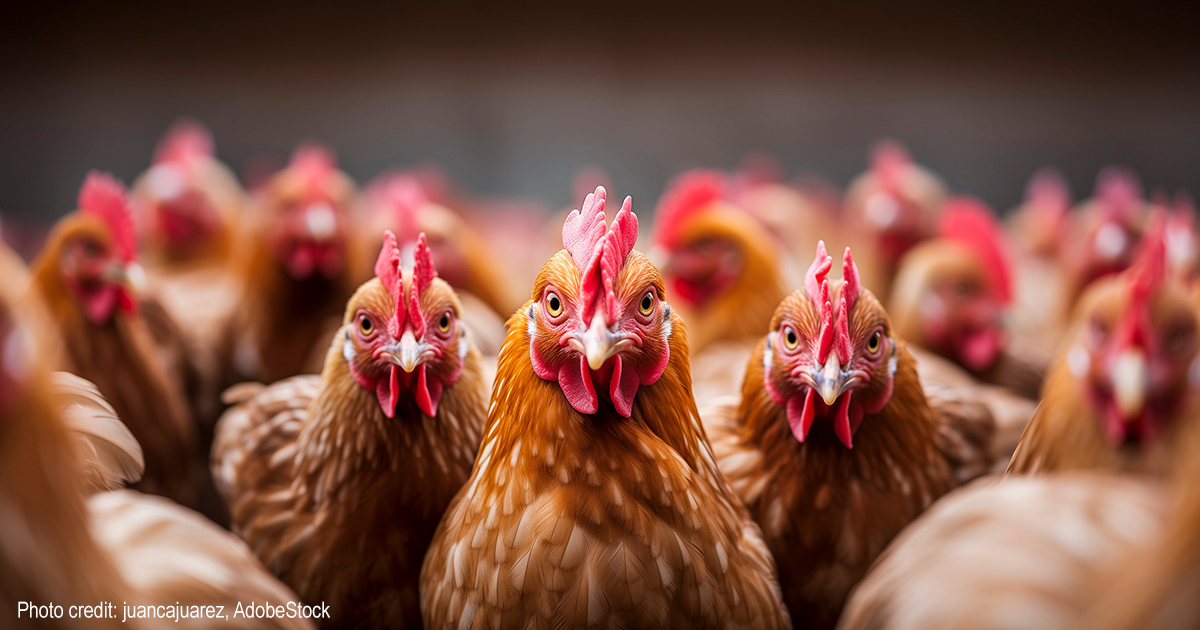
Feb 05, 2024 Farmed Animals and Food Systems: Global Developments
At the end of 2023, Open Philanthropy, a nonprofit organization, distributed its newsletter, including a global progress report on farmed animal welfare and food system change. Lewis Bollard, the Farm Animal Welfare Program Officer for Open Philanthropy, authored the report. Bollard’s initial comments address the lack of progress or setbacks during the year, including the European Union’s (EU) shelving of its ambitious farmed animal welfare reforms and sagging plant-based meat sales. He writes that despite the setbacks, animal advocates also had plenty of “wins” in 2023.
Advocates, primarily members of the Open-Wing Alliance campaigning in 67 countries, persuaded corporations in Asia and Indonesia to commit to cage-free pledges. Bollard calculates that if those pledges are fully implemented, they will reduce the suffering of around 800 million chickens. There have been questions about the usefulness of such promises, but Bollard notes that most of the 1,157 corporate pledges have been fully implemented. As a result, 39% of American hens, 60% of European hens, and 80% of British hens live cage-free, up from 6%, 41% and 48% respectively, ten years ago.
The US Supreme Court (in a 5-4 decision on May 11, 2023) upheld California’s Proposition 12, which banned selling eggs, pork, and veal from caged animals in California. Proposition 12 passed in 2018 with the approval of 62.7% of those voting. Ironically, the main opposition to Proposition 12 came from a consortium of animal rights organizations who argued that the proposition sold animals short and that one could do far more for animals by not eating them.
Bollard notes that even though the sale of plant-based foods sagged in 2023, many positive developments still existed. For example, vegetarian meals were served for the first time at a climate change summit in Dubai. Also, only 20% of Germans currently eat meat daily, down from 34% just eight years earlier, while almost half of US restaurants offer a vegetarian meal option, up from a third just five years ago. Food retailers in Germany and the Netherlands have set ambitious targets for plant-based meat sales, while Unilever pledged to generate $3 billion in plant-based meat sales by 2026. Meanwhile, the United Kingdom’s (UK) largest seafood retailer adopted crustacean welfare policies (following the British government’s acceptance that crustaceans are sentient), and the EU established the world’s first scientific reference center for fish welfare.
The EU has long been a leader in addressing farmed animal welfare. A major international conference on farmed animal welfare was held in Amsterdam in 1979. This conference’s presentations prompted several subsequent European animal welfare initiatives and considerable research on farmed animal housing upgrades. While the EU recently shelved its plans to end the caging of farmed animals, its citizens continue supporting measures to improve their well-being. The 2023 Eurobarometer poll on animal welfare (surveying 26,376 citizens from the 27 EU member states) found that 84% of the respondents believed the welfare of farm animals should be better protected. A similar percentage felt that EU-farmed animal welfare standards should be applied to imported animal products.
Bollard also notes in the December newsletter that farmed animal advocacy can be emotionally draining and discouraging. Compassion Fatigue and burnout are now recognized as significant health dangers for those working on animal protection issues. However, steps towards a more humane and sustainable world are happening. Bollard’s annual recap of advances in farmed animal welfare emphasizes the positive changes in contrast to a media ecosystem that primarily reports and thrives on negative news (“If it bleeds, it leads”).


